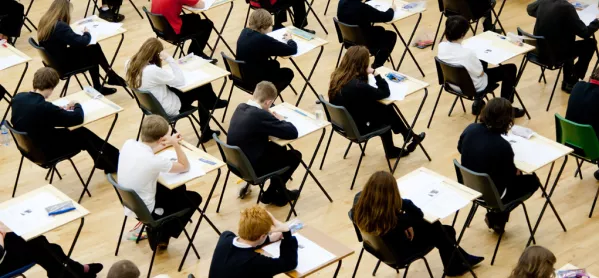School exams are increasingly being dismissed as “fake news”, according to new research.
The rigour of exams, from GCSEs to international tests such as the Programme for International Student Assessment (Pisa), have been caught up in the fractious debates about the integrity of public institutions that led to the election of Donald Trump and the Brexit vote, said the report by Dr Mary Richardson, a senior lecturer and leader of the Educational Assessment MA at the UCL Institute of Education.
“In recent years the public have simply become less trusting of institutions,” Dr Richardson told Tes.
She added: “In education we see this scepticism in the way exam results are viewed. People see rising grades and dismiss this as fake news. They think the exams are becoming easier.”
Tougher new GCSEs have been rolled out over the last two years, graded from 9 to 1, in a bid to offer greater differentiation between the brightest students.
However, the proportion of students reaching the pass levels - England’s new grade 4 and grade C in Wales and Northern Ireland - edged up by 0.5 percentage points to 66.9 per cent, according to the Joint Council for Qualifications.
This is because Ofqual’s “comparable outcomes” system ensures that candidates get broadly the same profile of results as in previous years, assuming that the prior attainment of the cohort remains the same.
But Dr Richardson said this only served to sow “confusion” among the public.
She said: “Exams were supposed to be made tougher, yet pass rates went up. I’m not surprised people were confused. We have seen doubts expressed about the rigour of exams for some years, but the degree of this disbelief has quickened recently.”
The rigour of international exams such an Pisa and Trends in International Maths and Science Study (Timss) have come under attack recently, as well as UK exams such as GCSEs and A levels, Dr Richardson said, when presenting her paper at the British Educational Research Association annual conference last week.




